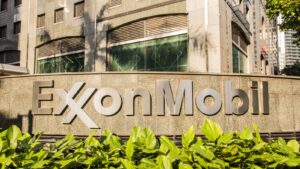
(Total, 28.Oct.2020) — Total is pursuing its strategy to reduce greenhouse gases emissions in maritime transportation, by chartering four Aframax-type vessels equipped with liquefied natural gas (LNG) propulsion.
These vessels, each with a capacity of 110,000 tons of crude oil or refined products, will be delivered in 2023 and will join the time-chartered fleet of Total. The first two vessels will be chartered from shipowner Hafnia, and the remaining two from Viken Shipping.
The vessels have been designed with the most efficient LNG propulsion technologies to reduce emissions, allowing a significant decrease in Greenhouse Gases, of more than 5,000 tons per year and per ship compared to conventional vessels.
“This chartering contract is in line with our Climate Ambition and will contribute to our Net Zero carbon neutrality target by 2050 or before. This contract follows a similar one, signed earlier this year, for two LNG-powered VLCC (Very Large Crude Carriers), to be delivered in 2022,” said Luc Gillet, Senior Vice President Shipping at Total.
“LNG as a Marine Fuel remains the best and immediately available solution to reduce the carbon footprint of our shipping activities. With these four new vessels, we reaffirm our commitment to expand the use of cleaner marine fuels, for a more sustainable shipping,” Gillet said.
The supply of LNG for these four LNG-powered vessels will be provided by Total Marine Fuels Global Solutions, Total’s dedicated business unit in charge of worldwide bunkering activities.
LNG as a marine fuel, the best and immediately available solution to reduce the environmental footprint of maritime transport.
A true technological breakthrough in the service of environmental protection, LNG is now the best available and technologically proven solution to significantly reduce the environmental footprint of maritime transport. Compared to ships powered by fuel oil, its use results in a reduction of:
— 99% of sulphur oxide emissions;
— 99% of fine particles emissions;
— Up to 85% of nitrogen oxide emissions;
— About 20% of greenhouse gases emissions.
__________

